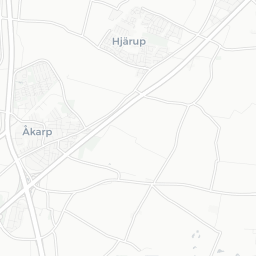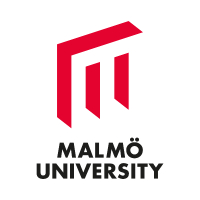PhD project: Electrochemical Investigation of Nanostructured Surfaces for Biosensing Applications in Oral Diagnostics
Malmö University
Malmo
Reference number P 2025/989
Malmö University is an innovative, urban, and internationally-oriented academic institution that, thanks to its committed and experienced staff, contributes to societal development. Here, teachers, researchers, and other employees with various competencies work together to conduct high-quality education and research. All professional categories and roles are important. You are welcome to apply for a job with us!
Here you can learn more about what it's like to work at Malmö University: Work with us
We are looking for
One (1) doctoral student in Biomedical Science at the faculty of Health and Society to develop and evaluate nanostructured electrode surfaces for innovative hybrid (bio)sensor platforms aimed at oral health diagnostics.
Work duties
Those appointed to doctoral studentships shall primarily devote themselves to their studies. Those appointed to doctoral studentships may, however, work to a limited extent with educational tasks, research, industry-related project work, artistic research and administration, however, duties of this kind may not comprise more than 20 per cent of a full-time post (Chapter 5, Section 2 of the Higher Education Ordinance).
In the research project part of the PhD training, the work duties include a variety of electrochemical techniques (CV, EIS, DPV), surface characterization tools (AFM, SEM), and sensor performance testing in both synthetic and clinical samples. The work will be highly interdisciplinary, interfacing with surface chemistry, microbiology, and data science.
The doctoral student is expected to summarize and interpret experimental results and present them in a PhD thesis and scientific articles.
Project
This PhD project will focus on leveraging Obducat Technologies AB’s nanoimprint lithography technology to fabricate and electrochemically evaluate nanostructured electrode surfaces for use in hybrid (bio)sensor platforms targeting oral health diagnostics. In close collaboration with Obducat within the research center “Biofilms - Research Center for Biointerfaces” (www.mau.se/brcb), the student will conduct fundamental and applied studies on NIL-produced micro- and nanostructured surfaces, with particular attention to how these features influence fouling resistance, surface reactivity and electrochemical response in complex biological matrices such as saliva and gingival crevicular fluid.
A major objective will be to assess how surface topography and material composition (e.g., gold, platinum, titanium) impact bacterial adhesion, biofilm formation, and cell viability—providing comparative data versus conventional flat electrode surfaces. These investigations will inform the design of bactericidal and bio-repellent electrode architectures that enhance sensor longevity and analytical precision. Beyond basic surface analysis, the PhD candidate will play a key role in integrating these nanostructured electrodes into two main sensor formats:
- Specific biosensors, such as molecularly imprinted polymers and reversible self-assembled monolayers, designed to detect bacterial virulence factors and host biomarkers.
- Electronic tongue arrays, which rely on low-selectivity sensor arrays and machine learning to interpret complex biomarker fingerprints.
To be admitted to third-cycle studies, the applicant must meet the general and specific entry requirements of the subject in question. Moreover, the applicant must be deemed capable of assimilating the education.
General entry requirements for doctoral studies and study programmes (HEO Chapter 7 Section 39) have those who:
- been awarded a second-cycle qualification
- has satisfied the requirements for courses comprising at least 240 credits of which at least 60 credits were awarded in the second-cycle, or
- has acquired substantially equivalent knowledge in some other way in Sweden or abroad.
Selection criteria
Selection among applicants who meet the general and specific entry requirements shall be made with regard to their capacity to assimilate the education (HEO Chapter 7 Section 41). Candidates must have a master’s degree in subjects related to chemistry, materials science, nanotechnology, biomedical engineering, or a closely related field. The candidate should have a strong interest in experimental laboratory work, particularly in electrochemical analysis and surface/interface science. The ideal candidate has previous hands-on experience with electrochemical techniques and/or surface characterization tools like atomic force microscopy and scanning electron microscopy.
Previous hands-on experience in the following areas is considered an advantage: nano- or microfabrication, biosensor development, molecularly imprinted polymers, self-assembled monolayers , microbiological methods related to biofilms or bacterial adhesion, and data analysis or machine learning applied to sensor signals.
Documented solid level of English (understanding, speaking and writing) is essential. The successful candidate should have the ability to work in a team and collaborate with people in complementary disciplines.
Faculty, Department and Research environment
The Department of Biomedical Science at Faculty of Health and Society (www.mau.se/bmv) offers programmes leading to a professional qualification as Prescriptionist and Biomedical laboratory scientist (both first cycle, 180 credits), and a Masters' programme, Biomedical Surface Science (second cycle, 120 credits), as well as first and second cycle freestanding courses.
The Department negotiates the multifaceted intersection between biology, chemistry, medicine, physics, and technology and the interdisciplinary approach to research and education aims to further develop the theoretical and practical understanding of the complex subject matter. Drawing on the balance between basic and applied research, the Department has been successful in attracting funding from regional, national, and international research funding bodies. In addition, in the pursuit of possible applications, several industry funded contract research projects are currently running at the Department. The research at the Department is also linked to our research center “Biofilms - Research Center for Biointerfaces” (www.mau.se/brcb), which combines biomedical science with clinical and translational research in medical, dental, food and environmental application areas in close collaboration with regional industry.
Further information
Project related questions:
Associate Professor Magnus Falk, +46 (0) 40-665 74 76, magnus.falk@mau.se
Professor Börje Sellergren, +46 (0)40-665 78 10, borje.sellergren@mau.se
Dr Khurram Osman, +46 (0) 70-327 37 87, khurram.usman@obducat.com
Questions regarding employment at Malmö university:
HR-specialist Heidi Francke, heidi.francke@mau.se
In our recruitment work, Malmö University has taken a stand regarding recruitment channels and marketing. We therefore decline all offers of advertising and recruitment assistance in connection with this advertisement.
You can read more about the benefits of working in Sweden here: https://sweden.se/collection/working-in-sweden/
Application
You apply for this position via Malmö University's recruitment system by clicking on the "Apply" button. As an applicant, you are responsible for ensuring that your application is completed in accordance with the job advertisement, and that it is submitted to the University no later than 9th of May 2025. The application must be written in Swedish, English or any of the Nordic languages. As an applicant, you are responsible for the application and its appendices being translated.
The application must include:
- Curriculum Vitae (CV), including names and e-mail addresses of two reference persons
- Diplomas, transcript of records and other certificates relevant for the position
- A copy of master thesis or equivalent
- A brief description of your view of the focus of the future PhD thesis (max 1 page)
- One page cover letter stating your motivations to apply to this PhD position.
Miscellaneous
Preparation of admission to postgraduate education and employment as a doctoral student take place in parallel. Only those who are or have been admitted to third-cycle courses and study programmes at a higher education may be appointed to doctoral studentships (Chapter 5, Section 3 of the Higher Education Ordinance).
The doctoral studentship is a fixed-term position comprising four years of full-time studies, in accordance with the HEO Chapter 5, section 7. A doctoral student shall be employed for an indefinite period but for no longer than until a specified date, and never for longer than a year after the doctoral degree or artistic doctoral degree has been completed. The first appointment must be limited to one year at the most. The appointment can be extended by a maximum of two years at a time.
Malmö University actively promotes gender equality and equal opportunities in order to offer a workplace and a university characterised by an open and inclusive approach.
As part of this:
- Applicants of an underrepresented gender are given priority for admission, if they are equally able to benefit from the programme.
- Doctoral students with permanent disabilities are given the opportunity to receive support and adaptations during their studies, so that everyone can study on equal terms in a good study environment.
Malmö University is a workplace and higher education institution that is characterised by an open and inclusive approach, where gender equality and equal terms add value to our activities.
Employees who do not speak Swedish should learn Swedish in the long term so that they can participate in the daily and ongoing work of the institution or department.
Malmö University applies salary setting for doctoral students in accordance with a local agreement on salary setting for doctoral students.
If the admitted person requires a residence permit to live in Sweden and pursue their studies, the University reserves the right to revoke the admission decision if the admitted person cannot present a valid residence permit as required on the date they are due to commence their education.
Start date
12 June 2025 or upon agreement, but no later than 1 September 2025.
Union representatives
SACO-S: Désirée Annvir, desiree.annvir@mau.se
Sveriges Lärare: Peter Persson, peter.persson@mau.se
OFR/S (ST): Lutfi Zuta, lutfi.zuta@mau.se
PhD Student Union representative
Barnabas Nyesiga, barnabas.nyesiga@mau.se
We are looking forward to receiving your application!
#LI-MAU
You apply no later than 09/05/2025 by clicking the apply button.
This job posting is collected from company pages and is only shown as short resume. Read entire job ad here:

















